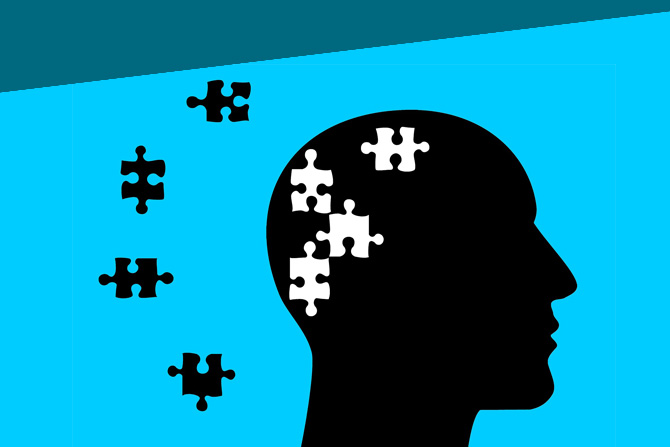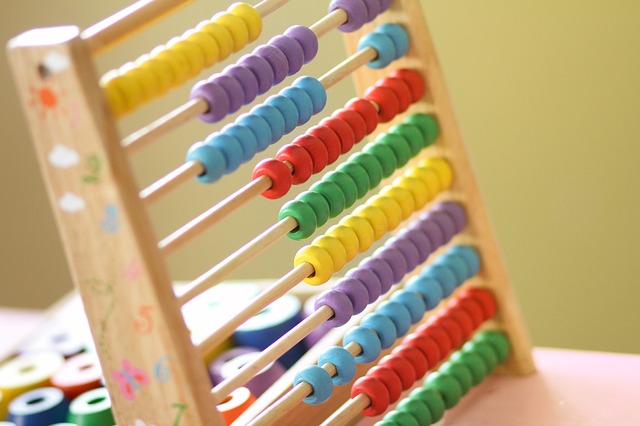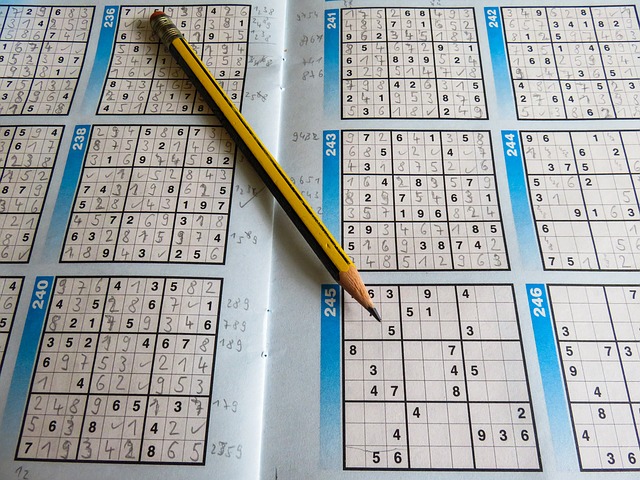Memory Exercises for Seniors Can Stimulate the Brain
May 23, 2018

Age brings change. There’s just no way around it. And this transition is front and center as millions of baby boomers enter their senior years. But we can often manage these changes to sustain our health and optimize our quality of life.
An area of healthy living that’s getting more and more attention involves the brain, including ways to maintain our memory function. Just as with any other part of the body, the brain can atrophy over time and lose what’s called its “cognitive reserve.”
As we get older, we start to experience frustrations like difficulty in quickly remembering a particular word. Or mixing up the grandkids’ names. Or forgetting what we came into a room to get. Beyond being an annoyance, these experiences can be a little scary as well.
Several behaviors can have a positive effect on the brain like regular exercise, not smoking, a healthy body mass index (BMI), eating fruits and vegetables, adequate sleep and modest alcohol intake. In addition, mental exercises can help stimulate the brain by providing novelty and challenge to stay sharp. The positive effects can have an impact on memory, creativity, attention and cognitive performance.
Here’s an inventory of memory exercise for seniors gathered from a variety of sources. Evidence suggests that exercises associated with real-world tasks as well as the senses are most effective.
So dig in and pick the ones that are right for you!
Total Recall

Ever have the feeling that the word you’re looking for is right on the tip of your tongue? These are some ways to hone your recall ability.
- Make a list and commit it to memory. Then, after about an hour, how many of the things on the list can you remember?
- Try to draw a map (from memory, of course) when you get back from a trip to a new place.
- Get out old photos and try to identify people, the year and what was happening.
- Create a pop quiz based on a list read out loud and see who can remember the most entries.
- Using paper and pen to keep a journal, compose poetry or send letters can stimulate a variety of senses.
Get a Hobby

Challenging yourself with new activities can be a wonderful way to broaden your horizons while improving brain function at the same time.
- Listening to music requires the processing of melody and rhythm. Actually learning to play can strengthen the visual, auditory and motor cortexes while using both hemispheres of the brain at once.
- Cooking engages all five senses, which in turn involve different areas of the brain. At the table, try to identify ingredients, including spices and herbs.
- Activities like knitting, drawing, painting and puzzles can support fine motor skills, hand-eye coordination and pattern recognition.
- Take up a new sport that requires both the mind and the body like tennis, golf or yoga.
- Gardening, in addition to getting us outdoors, can help memory, boost organizational skills and relieve stress.
Do the Math

OK, so you may not be that great at math. But it can be a powerful way to stimulate associated areas of the brain.
- Try figuring out problems in your head without pencil, paper or computer.
- Get workbooks at the book store, and don’t avoid the word problems.
Speak Up
Language is, of course, a fundamental function of our brain. And it can be used to strengthen our mental capabilities.
- Learning a new language triggers several areas in the brain for understanding and producing it.
- Visualize how a word is spelled, then come up with other words that start or end with the same letters.
- Read a sentence and count how often the same letter occurs.
Play Games

You probably have favorite kinds of games, from cards to computers. Behind the scenes, those experiences are sharpening your brain power.
- All kinds of games involve thinking as well as the senses to help build tactical, strategic, memory and problem-solving skills.
- Sudoku and crossword puzzles can not only boost recall but may stimulate the speech and language centers.
- Board games have the added benefit of creating a stimulating social environment.
- Jigsaw puzzles and visual puzzles, like finding the differences between two pictures, can enhance visual discrimination (important for tasks like driving).
And More
Here are even more ways you can match your interests to the quest for staying sharp.
- Asking your non-dominant hand to do things like brushing your teeth challenges the brain to establish new connections.
- Lectures and plays can introduce you to new ideas and help with memory.
- Learning new phone and computer apps is a great way to challenge the brain.
- Pets can have a soothing and calming effect, and the tasks required to care for them require memory and organization.
It’s important to recognize that research about sustaining and improving brain function as we age is ongoing. There is still a lot to learn about this amazing and mysterious part of our body. But a healthy lifestyle combined with some mental stimulation through brain exercises for seniors can help. Plus, it’s fun!







